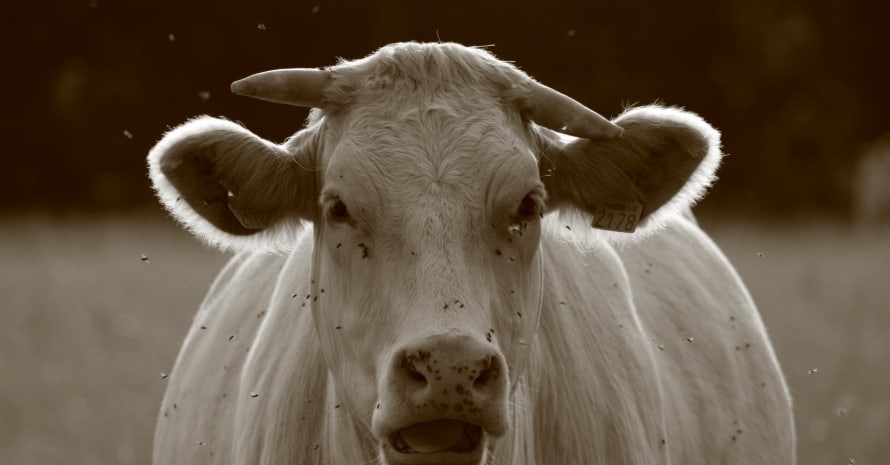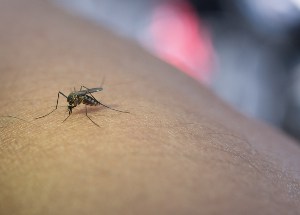Mosquitoes have a great potential for ruining your holiday or tour. Not only are these whining, buzzing pesky things annoying; they also carry a number of serious diseases. This becomes especially scary if you are planning a trip outside North America.
Yet, even within the US, an encounter with a horde of aggressive, blood-hungry mosquitoes is something that you want to avoid.
One approach is staying out of the harm’s way by limiting your activity when the critters are most active and vice versa. But what time do mosquitoes come out? Read below to learn about the pest’s rhythms.
What Is The Best Time to Avoid Mosquitoes

When asked, “When are mosquitoes most active?”, I should divide my answer into blocks dealing with different aspects of the when, namely the yearly cycle and the daily rhythms of mosquitoes.
Please note that this article is largely focused on the species found in the US. With some 174 of those in the continental part of the country alone, the diversity of habits that the pests demonstrate is nearly confusing. Still, there are patterns, by knowing which you can spare yourself a lot of nasty bites.

When is mosquito season?
Generally, mosquitoes are more afraid of cold than they are of heat. There is a magic number that’s been determined as the start of the mosquito-free season for a vast majority of species — when air temperature drops below 50 degrees Fahrenheit, it normally means it’s time to hibernate.
There’s a popular belief that cold kills mosquitoes. However, a lot of them deal with it by accumulating extra body fat that helps them survive through the winter and seeking warm abodes until the weather improves.
Alternatively, they supply their eggs with all they are likely to need for overwintering, so the younglings appear in spring.
Regardless of their preferred survival strategy, mosquitoes don’t normally bite during the cold season. The dates for this obviously differ based on your location. You can keep checking your local weather forecasts for the first time that the temperature becomes steady at above 50 degrees Fahrenheit after the winter, which would mean the beginning of the mosquito breeding season.
Conversely, days colder than the magic number are the most accurate answer to “When does mosquito season end?”. If you live in the south, for example, in Florida, expect high mosquito activity from early spring to late fall. In the northeast, however, it’s usually just the first weeks of fall that are marked by considerable mosquito presence.
[su_youtube url=”https://youtu.be/fhmgAelTXmk”]
Also Read: Unbiased Thermacell Review
Peak mosquito hours
Even in the midst of the mosquito season, the critters won’t pester you 24/7, which is surely good news. The bad news is that their daily habits differ much more than their seasonal presence. While we are generally taught to avoid mosquitoes at night rather than during the daytime, it turns out that these pests are more complex than that.
The preferred rest hours of a mosquito are determined by the species that it belongs to. The world is inhabited by some 3,200 mosquito species, many of which are united into genera that share characteristic features as well as residence. These generally fall into two categories based on their daily habits.
There is a category of mosquitoes described as nocturnal, meaning that they are more active during the night than in the daytime. This includes biting around dusk and dawn as well as all-night-long blood hunting.
For most people in North America, this kind of behavior appears typical of mosquitoes in general because it’s demonstrated by the large Culex genus encompassing a total of over a thousand species. These are the most frequent guests in human accommodations in many large cities.
Culex mosquitoes are found nearly worldwide except for the extreme part of the so-called temperate zone, and the US is no exception. That is, paying special attention to mosquito protection at night would be wise for most Americans.
Another nocturnal genus, Anopheles, is also notorious for spreading human malaria. While the dangerous disease is associated primarily with tropical areas such as sub-Saharan Africa, several species belonging to it occur in colder climates as well, including North America.
Finally, there are diurnal species that are most active during the day. These include Aedes, initially limited in habitat to subtropical and tropical areas but now also found in the New World and ill-famed for carrying Zika virus. When the sun sets, diurnal species become generally inactive and unlikely to bother people.
Also Read: Detailed Mosquito Trap Reviews
How to protect yourself during mosquito activity
Presuming that you are somewhere in North America, I recommend being extra careful during the transition between day and night as well as at nighttime.
Viable solutions include using mosquito repellents, preferably formulated as spray (but bracelets for kids too), and wearing less revealing clothes when you have to go out. For picnics and other outings where you sit a lot, candles can be a valuable addition. Just be sure to pick a formula that’s safe for anyone present, such as kids and/or pets.
Remember that there is nothing to guarantee you a completely mosquito-free experience in broad daylight either.
FAQ on Mosquito Activity

In this section, I provide brief answers to a selection of curious questions I’ve been asked about mosquitoes’ circadian rhythms and sleeping habits.
Why do mosquitoes come out at dusk?
The statement that mosquitoes come out at dusk is only true when it comes to specific, although wide-spread, species, such as representatives of the Culex genus that is associated with the so-called West Nile virus. These are very unlikely to appear when the sun is high and hot because exposure to burning sunlight dehydrates them.
However, there are species in the Aedes genus, potential spreaders of Zika virus, mostly found in tropical and subtropical areas but now also present in North America, that tend to bite mostly during the daytime.
Also Read: Detailed Guide on Mosquito Foggers
Do mosquitoes sleep?
They do. Mosquitoes rest a lot like humans, that is, they stay still for some time without either flying or biting or showing any activity at all. This can happen during the day or at night depending on the species (see above). Occasional siestas are possible, too.
Are mosquitoes nocturnal?
Some are, and some are not. There are species known to be nocturnal, that is, active in the night, while others tend to bite in the daytime. However, most mosquitoes that you can come across in the United States are probably nocturnal.
Please note that the term “nocturnal” might appear somewhat vague when it comes to biting habits because there are nighttime mosquitoes that will bite you throughout the night, while others are mostly active at dusk.
Reducing Mosquito Exposure to a Minimum
Mosquito habits differ considerably depending on where you are and which species you are dealing with. Across the world and even in North America, there are mosquitoes that bite at night as well as day-time biters. The latter is a much smaller category, though, especially in the US.
It is in the dark hours throughout the spring and summer that Americans are most likely to need repellents and other anti-mosquito strategies to avoid itchy swollen bites.
When do you feel mosquitoes are most active in your area? Share in the comments, and don’t forget to mention where you are from!
Also read:
- Homemade Mosquito Trap
- Homemade Mosquito Repellent
- Bugs That Look Like Mosquitoes
- How to Kill a Mosquito in Your Room
- How to Kill Mosquito Larvae
References:
- Mosquito-Borne Diseases (Department of Molecular Virology and Microbiology Baylor College of Medicine):
https://www.bcm.edu/departments/molecular-virology-and-microbiology/emerging-infections-and-biodefense/mosquitoes - Mosquitoes (Entomology Department at Purdue University):
https://extension.entm.purdue.edu/publichealth/insects/mosquito.html - Anopheles (Wikipedia):
https://en.wikipedia.org/wiki/Anopheles - New study reveals how day- and night-biting mosquitoes respond differently to colors of light and time of day (University of California):
https://som.uci.edu/news_releases/Mosquitoes-respond-differently-to-colors-of-light-time-of-day.asp

